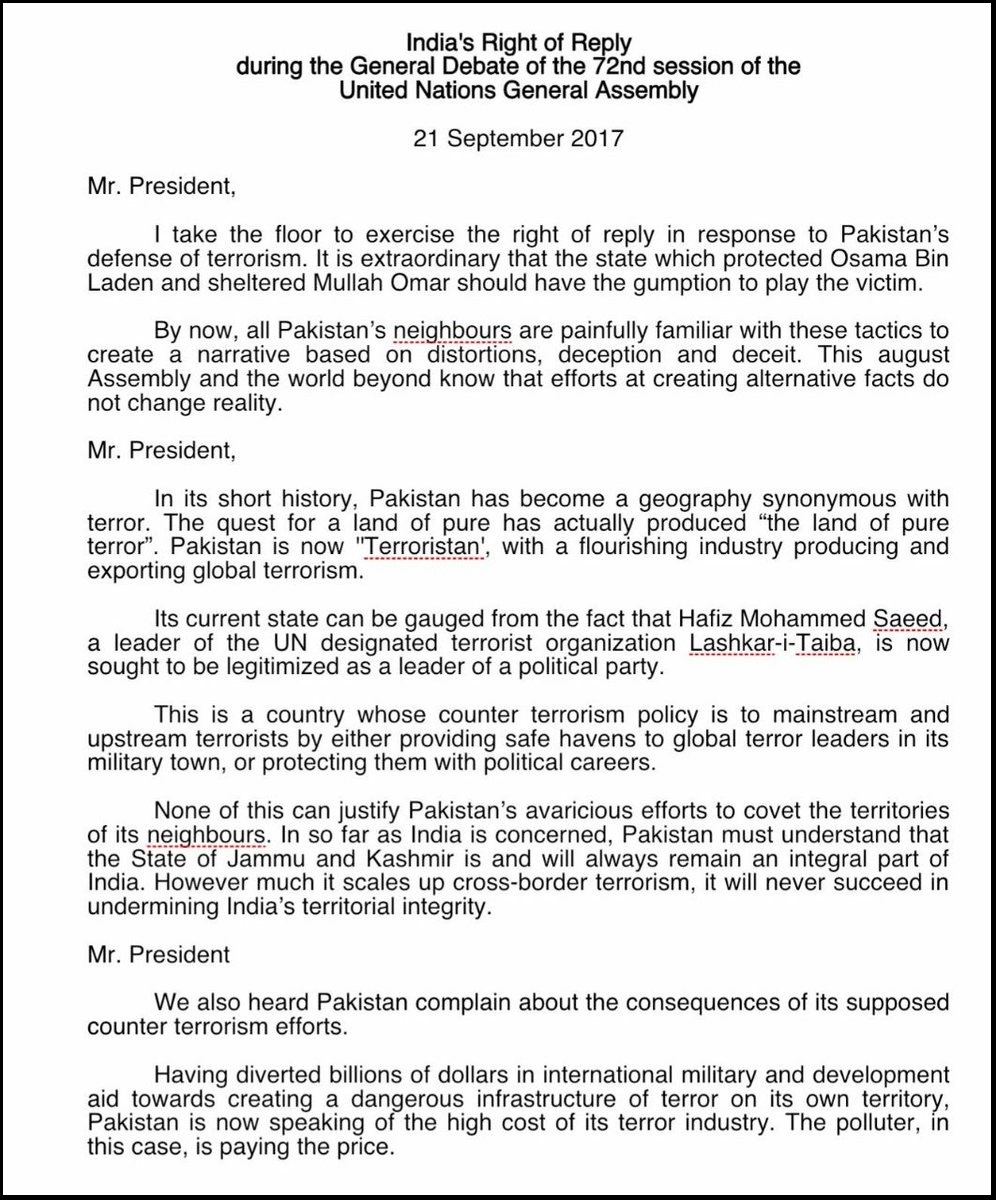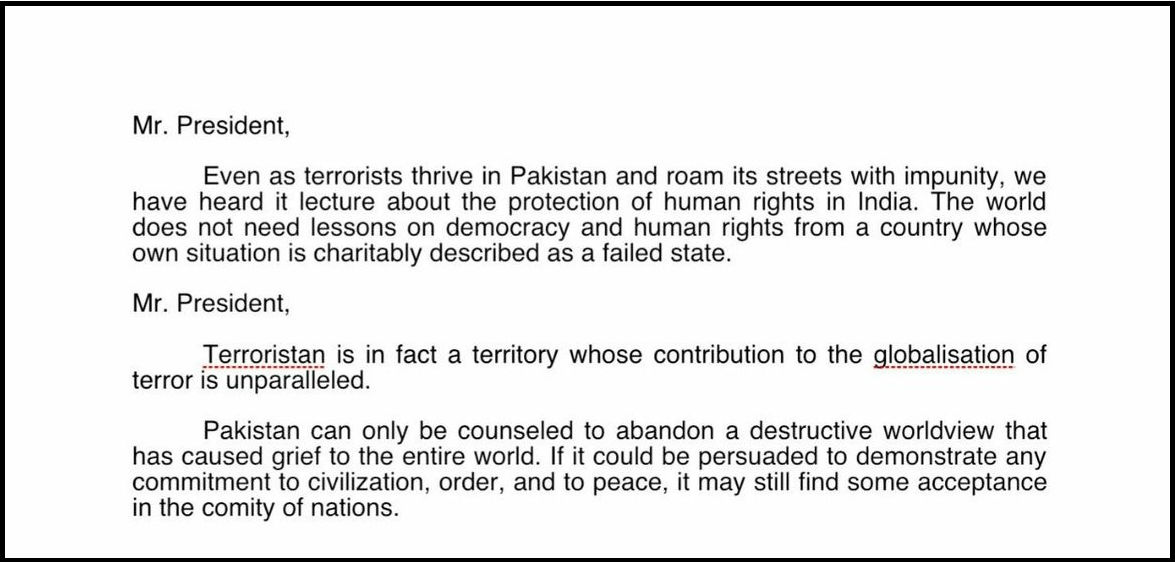Perplexing that US Military and Political bigwigs only see the light of the Islamic Republic of Pakistan’s Mohammadden Terrorism Fomenting ways, if at all, after they demit office

. Until they demit office US Military and Political bigwigs permit the Islamic Republic of Pakistan’s to extract billions of Dollars of US Taxpayer money

despite an open display of the Islamic Republic’s Mohammadden Terrorism Fomenting ways.
Article titled “The Problem In Afghanistan Is Pakistan” by Lawrence Sellin, Ph.D. who is described as “a retired US Army Reserve colonel, an IT command and control subject matter expert, trained in Arabic and Kurdish, and a veteran of Afghanistan, northern Iraq and a humanitarian mission to West Africa.”
The Problem In Afghanistan Is Pakistan
Lawrence Sellin
Retired Colonel, U.S. Army Reserve
4:06 PM 07/07/2017
Regarding a new strategy for Afghanistan, even Pakistan’s former ambassador to the United States says that a tougher approach needs to be adopted toward his country:
The Bush administration gave Pakistan $12.4 billion in aid, and the Obama administration forked over $21 billion. These incentives did not make Pakistan more amenable to cutting off support for the Afghan Taliban.
The U.S. cannot win in Afghanistan as long as Pakistan controls the resupply of our troops and regulates the battle tempo through its support of the Taliban, the Haqqani network and the other Islamic terrorist groups it nurtures.
And make no mistake, Pakistan does not want the U.S. to win because it views Afghanistan as a client state.
In addition to reducing foreign aid to a trickle, Pakistan has other potential pain points.
Recently introduced by Reps. Ted Poe (R-TX) and Rick Nolan (D-MN), but quickly tabled by a limp-wristed Republican House, HR 3000 sought to revoke Pakistan’s status as a major non-NATO ally (MNNA) granted by President George W. Bush in 2004 to encourage “Islama-bad” to support the fight against the Taliban and al Qaeda.
As a MNNA country, Pakistan became “eligible for priority delivery of defense material, an expedited arms sale process, and a U.S. loan guarantee program, which backs up loans issued by private banks to finance arms exports. It can also stockpile U.S. military hardware, participate in defense research and development programs, and be sold more sophisticated weaponry.”
Pakistan returned that favor by allowing the Taliban to rest, regroup and resupply inside its territory and played host and protector to Osama bin Laden from 2005 until his death at the hands of U.S. Navy SEALs in 2011.
Even the Islam-friendly Obama Administration was forced to withhold $300 million in military reimbursements because Pakistan was not taking adequate action against the Haqqani network.
Those facts, plus the plethora of other violent radical Islamic groups currently operating in and from Pakistan could justify declaring it a state sponsor of terrorism.
Probably the greatest of all potential Pakistani pain points is ethnic separatism.
Pakistan is not so much a nation, but a collection of simultaneous arguments, an artificial political entity created by the British during the partition of India, founded entirely on the ideology of Islam and composed primarily of five ethnic groups that never coexisted – the Bengalis, Punjabis, Pashtuns, Sindhis and Baloch.
The “Islamization” program initiated by Pakistan President Zia-ul-Haq (1977-1988) was specifically designed to suppress ethnic separatism and make Pakistan the global Sunni leader, an effort that eventually led to the proliferation of Islamic terrorist groups within its borders.
If Pakistan continues to use the Taliban and the Haqqani network as instruments of its foreign policy in Afghanistan, the exploitation of ethnic separatism within Pakistan, such as in Balochistan, remains an option. That is, fight an insurgency with an insurgency.
Another consideration is to challenge the Durand Line, the arbitrary 1896 border drawn by British diplomat Sir Mortimer Durand, whereby Pashtun lands currently in Pakistan could be incorporated into Afghanistan to prevent Pakistan from using its Pashtun population as Taliban cannon fodder.
Clearly, rounding up the usual collection of incentives has not changed Pakistan’s strategy. It is time to change ours.
Admittedly, Pakistan will respond negatively to such an approach, but even the worst case scenario will only hasten an outcome that is inevitable if the U.S. continues its present strategy in Afghanistan. That is, a humiliating defeat, a return to pre-9/11 conditions in Afghanistan and the exclusion of the U.S. as a significant player in South Asia for generations.
The choice is simple – either recognize that Pakistan perpetuates the war in Afghanistan and do something about it or get out now.
Daily Caller Web Link:
The Problem In Afghanistan Is Pakistan
